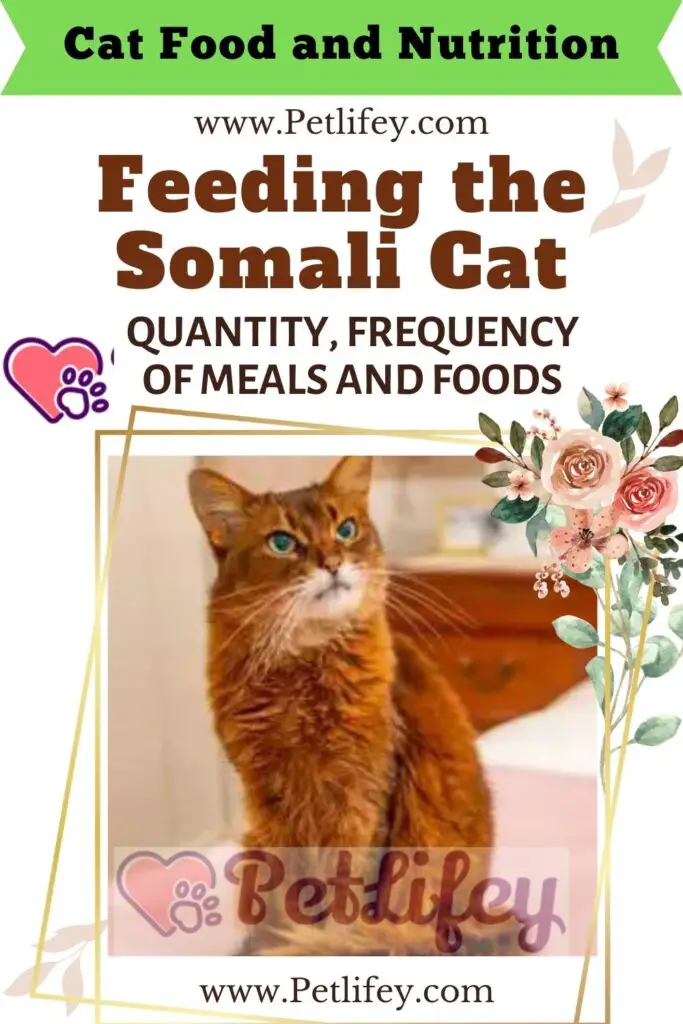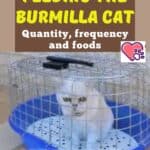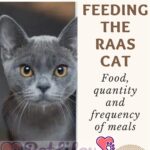
Feeding the Somali cat all the right foods, in the right doses and in the right times to feed this wonderful breed of cat.
For all those who have decided to share their life with a Somali cat, it is important to know how to take care of the newcomer and what to feed him.
In this article we will deal with the feeding of the Somali cat, the frequency of meals and the quantities necessary for the daily requirement of this cat breed.
The Somali is a medium-sized breed of cat with a compact, agile and muscular body. Precisely for this reason the need for a properly adequate diet.
Let’s find out what the Somali cat’s diet is and the right doses to meet its daily needs.
What to feed the Somali cat

If you are thinking that all cats are the same and they all eat the same thing, you are wrong. Each cat has its needs and also its tastes.
Finding out about the type of diet that the Somali must follow is important for his health and also for his appearance.
Good nutrition will allow him to have a shiny coat and a standard build.
What is not wrong to think that the Somali diet is a diet based on animal proteins (meat).
It does not matter if you use industrial products (commercially available) or if you prepare tasty homemade cat recipes.
What matters is having a feeding program and maintaining a controlled and disciplined regimen, in order to avoid obesity in the cat.
It is essential that nutritional values, the quality of fresh products and good hygiene in preparation are respected.
Whatever the type of food choice, it is always the veterinarian who must establish the right type and quantity of the cat’s meals.
As carnivorous as it is, it is important not to feed him only meat but to offer him a complete and balanced meal.
The order of the nutritional values to be administered at each meal must be:
- proteins: basic as they are useful for the formation and maintenance of muscles, other tissues, blood but also for the regeneration and conservation of body cells and tissues.
- fats: a necessary source of energy and are mainly responsible for the transport of substances in the body as well as for the support and development of the joints and the nervous system;
- carbohydrates: immediate source of energy to face a sudden effort such as a run, a chase, an escape, a sudden stress etc.
- minerals: essential for the development and maintenance of tissues;
- vitamins for cats: useful for keeping the immune system strong and healthy. However, it is necessary to use it appropriately, perhaps by contacting the veterinarian.
The foods to be used for any recipes for cats are: chicken, turkey, beef, salmon, tuna, trout, mackerel, fresh fruit and vegetables, fermented milk products, probiotics.
Without excluding foods such as offal, liver and muscles, rich in essential nutrients for the well-being of the animal, including tea; thiamine; niacin; Vitamin B12 for the cat.
Feeding the Somali cat: doses and frequency of meals
There are criteria according to which it is possible to establish doses and meal frequency for your Somali cat.
These parameters are: age, lifestyle, general health and gender. In any case, being a very greedy cat, one must be careful not to overdo the doses.
Therefore, experts recommend to administer starting from the first months of the cat’s life with 3 and 4 servings per day, from 25 to 30 grams each.
Then moving on to consume 160 grams of wet food or dry food (croquettes) every day.
After 7 years, the diet of the elderly cat must be adapted to his needs, in order to guarantee him a state of good health.
Never forget to leave him a fountain with fresh water, as any cat has a low tendency to drink and this affects his health.






